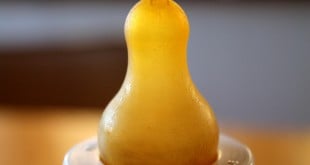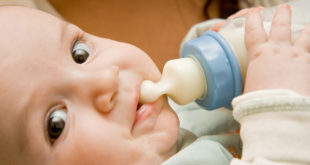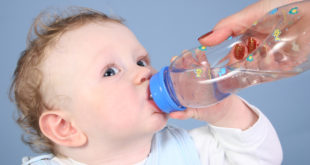Ask Anne…
 Question: I nursed my first child for a year and plan on breastfeeding my new little bundle of joy. However, I can’t remember when I first gave him a pacifier, so that it would not interfere with breastfeeding and cause “nipple confusion.” How long should I wait before introducing a pacifier?
Question: I nursed my first child for a year and plan on breastfeeding my new little bundle of joy. However, I can’t remember when I first gave him a pacifier, so that it would not interfere with breastfeeding and cause “nipple confusion.” How long should I wait before introducing a pacifier?
Answer: Many babies switch forth effortlessly between breast and bottle from day one. Others become “nipple confused” if artificial nipples are introduced during the early days of nursing, because the mechanics of breast and bottle feeding are quite different.
Babies who suck on artificial nipples may not suck correctly when they go on the breast, causing sore nipples. The risk of nipple confusion, whether by introducing a bottle or pacifier, is greatest during the early days of nursing. Breastfeeding is a learned behavior, in most cases, although there are some babies who seem to be born knowing exactly what to do. Although sucking is a newborn reflex, the mechanics of effective latching on aren’t.
It usually takes a couple of weeks, and sometimes longer, for mothers and babies to get really good at nursing. By that time, any problems you had in the beginning, such as engorgement or nipple soreness, should be pretty much resolved, and your baby’s pattern of weight gain should be established. If nursing is going along smoothly, there should be no reason to use artificial nipples in the first couple of weeks of breastfeeding. Nursing frequently and using the breast as a pacifier are what builds a good milk supply and helps you and your baby develop a special closeness during the period immediately after your baby’s birth. Ideally, pacifiers should be introduced after the first couple of weeks of nursing, and before the baby is a month old. Many babies will refuse to take it at all if you wait much later than that to introduce it.
There are some valid concerns about the use (and abuse) of pacifiers. Aside from the risk of nipple confusion, pacifier use is correlated with early weaning for a variety of reasons. Because newborns love to suck on anything put in their mouth, whether it is a finger or an artificial nipple, they may use the pacifier as a substitute for feedings, especially if they are small, ill, jaundiced, or just have a very laid back temperament. It’s always important to make sure your baby is getting enough milk, especially if he tends to be sleepy.
There is a spot in the back of a baby’s mouth where the hard palate meets the soft palate. When anything touches it, an automatic sucking reflex is triggered. That’s why babies will suck automatically when a finger or a rubber nipple is put in their mouth. The soft, mushy human nipple must be drawn back in the baby’s mouth until it hits that spot, so use of an artificial nipple may make him somewhat lazy when it comes to nursing. Some babies are sleepy and perfectly content to happily miss a feeding as long as they have something to suck on, and some mothers take advantage of this by plugging their baby’s mouth with a pacifier every time he fusses in order to make him sleep longer or go longer intervals between feedings.
Young infants should spend their time and energy in nutritive sucking at the breast, not in non-nutritive sucking. Overuse of pacifiers can lead to poor weight gain, plugged ducts and mastitis, and a decrease in milk supply. After all, all a pacifier really is just an imitation nipple, and as such it should be used in moderation and not as a frequent substitution for the real thing.
For more information, see Introducing Bottles and Pacifiers to the Breastfed Baby.
Anne Smith, IBCLC
Breastfeeding Basics
 Breastfeeding Basics
Breastfeeding Basics




